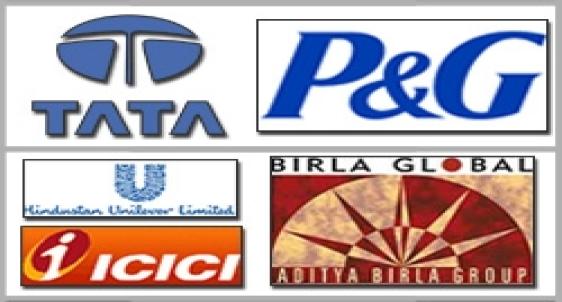
Although the placements received a blow due to the recession, a good MBA is a long-term asset for a student
Management education has emerged as one of the main focus of higher learning in India. According to a report ‘Management Education in India’ by management education experts B Bowonder and SL Rao, changing economic conditions and global competition has given management education in India an increasingly central role in the success of individuals and corporations.
Dr. Pankaj Chandra, Director of IIM Bangalore, said, “The best part about the MBA schools is that the program there is based on learning how to build and mould innovative organisations. The concepts of management are equally applicable to all kinds of organisations – hospital, NGO, museum or a public administration office.” Another key benefit about getting an MBA degree is honing networking skills, he added.
The management experts opine that success in the 21st century is all about 'ideas', and management education helps in fine-tuning these ideas. Santosh Desai, COO of McCann Erickson, said, “Nowadays, the notion of ‘money makes money’ has shifted to ‘ideas make money’. I think this is a substantial shift. Businesses are based more on ideas these days. Only those who apply unique ideas stand out in the business world. And this is what makes management education the top choice among students in India.”
Apart from learning all that MBA offers, good jobs and corporate placements is another key attraction for MBA aspirants. However, given the economic slowdown, students are worried about future prospects. When MBAUniverse.com spoke to the Directors of leading MBA schools in India, they said that recession should not be a major cause of worry for the students.
If you compare the MBAUniverse.com MBA Placement Report of 2008 with 2009, you will see that even the IIMs witnessed a slide in the average salary package during the recently concluded placements as compared to last year. At IIM Ahmedabad for instance, this year’s average domestic salary has come down to Rs 12.17 lakh from previous year’s Rs 18.75 lakh. Highlighting the brighter side, Placement Chairperson of IIM Ahmedabad Saral Mukherjee said, “All students of IIM Ahmedabad have been recruited by big companies in spite of recession. However, the leading MBA school in India witnessed a 30 per cent dip in the average offered salary.”
Similarly, the average salary fell down by around 23 per cent at IIM Calcutta. The domestic average salary this year has been Rs 12.70 lakh with the highest offer at Rs 60 lakh per annum. While the average figure for 2008 was Rs 16.40 lakh with maximum salary level at Rs 65-70 lakh. Prof Prafulla Agnihotri, Placement Chairperson of IIM Calcutta said, “Although the average salary fell down considerably, it needs to be noted that the firms that visited IIM Calcutta campus last year did not lower their offer packages this year. Only the intake per company came down resulting in the fall.”
The economic slowdown also made its impact on the final placements at IIM Kozhikode too. IIM Kozhikode placements chairperson Dr Purani said, “This time the average annual salary offered was Rs 10.56 lakh. It saw a slump of about 28 per cent as compared to last year’s offer.”
According to Director of IMT Ghaziabad Dr. Anwar Ali, although this year’s placement process was lacklustre, the scenario will improve very soon. “The economy is already on its way to recovery, so an MBA degree will become an asset in the future. The future of MBA is very positive, very bright,” Dr. Ali said. He added that IMT Ghaziabad, which is one of the top MBA schools in India, has devoted one of the senior level employees at IMT entirely for the placement process to bring more focus and discipline to the MBA school placement processes.
Voicing similar opinions, the Dean of Placements and Corporate Affairs of MDI Gurgaon NR Bhusnur Math told MBAUniverse.com, “I’m happy that although it took a longer time, the placements at MDI Gurgaon have closed for 2009. Some of the regular recruiters, who used to visit our campus, did not turn up because of the slowdown. But then, we were visited by some of the best Public Sector Units (PSUs) instead.”
Talking about the future of management education, the academia of the top MBA schools in India stick to the fact that the situation is bound to improve. While explaining, the Director of MDI Gurgaon Dr. BS Sahay said, “India and China are economically very stable right now. We have a strong regulatory system and a stable government, so I see no reason to worry or assume that the economic situation has hampered the management education domain.” CS Venkata Ratnam, Director of IMI, too, said, “The best thing for the students who are entering MBA this year is that by the time they will be graduating, the economy will be fully recovered.”
Also, nowadays, MBA schools in India are encouraging its students for entrepreneurship since it enables them to think of own unique business ideas. Management education can prepare you to do everything from writing a business plan to acquiring venture capital to launching an IPO. In other words, your MBA degree will develop your entrepreneurial potential by focusing on value-based solutions, developing creative problem, solving basic skills and perceiving the change as an opportunity, and so it becomes an asset.
Many students plan their own entrepreneurial venture right after coming out of MBA schools. This has urged leading B-schools to increase their focus on entrepreneurship. The Director of MDI Gurgaon said, "Over 20 MDI Gurgaon students from the batch of 2009, either went for higher studies or started their own ventures. It should be noted that this was not due to lack of jobs, but because of their own zeal to do something of their own or pursue further studies.”
Next: What does a typical MBA program teach?
MBA Primer is a series of exclusive articles prepared by MBAUniverse.com keeping in mind the needs of MBA aspirants. Based on comprehensive updated inputs from experts and credible sources, these articles by MBAUniverse.com cover topics like: Basics of MBA, How to crack written tests like CAT and How to select the right MBA institute.



























